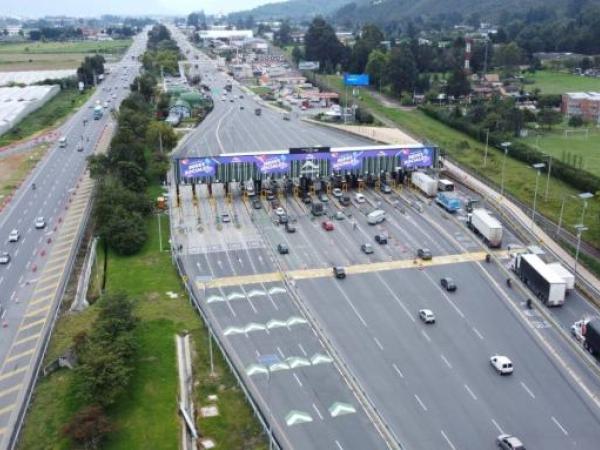Facing electoral contests “with the greatest unity” was one of the conclusions of the last conclave convened by the President of the Republic, Gabriel Boric, and which took place at the Presidential Palace of Cerro Castillo, Viña del Mar, on Sunday, November 6. . This, in addition to the main achievement: the formation of a single alliance that brings together the two coalitions. However, when leaving, a leader of Democratic Socialism qualified it and explained that this did not necessarily mean a single list for the constituent process, since –according to the source– each soul of the Government was capable of summoning a different electorate.
After the months and with the deadline to present the lists for the election of constitutional councilors set for February 6 –with elections on May 7–, the different coalitions begin to draw the political limits that they will define to go to elections. This Monday, January 23, the parties of the Government alliance arrived at the PS headquarters after 9 in the morning, to continue the talks with the aim of putting together one or two pacts for the candidates for councilors: it was not possible to reach a decision.
From Chile Vamos, for example, they have already declared that they will be on a list that will leave out the Republican Party and they will seek to present one that includes sectors more from the center, such as Amarillos and Democrats. The story has not yet been defined in the ruling party. One option on the table is for Democratic Socialism to be presented as a separate list to that of Approve Dignity, along with Christian Democracy, an option up to now supported by the PPD and the PR. At the very least, it can generate tensions and make differences more evident, but under the surface, and according to academics, it implies a defeat for the government.
After the statement by former senator Guido Girardi (PPD), in which he described that a single list would be that of the Government and, therefore, “the pardon list”, the spirits in the official parties were altered and the reactions were not they made us wait.
The Minister of the Interior, Carolina Tohá, also PPD, affirmed that “it requires a lot of explanation of why it was done and for what.” For his part, the president of the PC, Guillermo Teillier, said that “one could say that the PPD list will be the SQM list. But if we enter into that disqualification, we are not going to get anywhere, neither with a single list nor with two lists”. The differences increased and, with this, different officials have declared their preferences and what the fact of going on a joint list or on two separate ones means.
There are two lines. The first, which represents the Government, is to present a single list. The president of Comunes, Marco Velarde, stood firm in the statement that the single list accounts for “the desire for dialogue and articulation of the ruling party”. In addition, he added that some representatives of the ruling party -such as Girardi- must respond to the call of the Head of State: “This is the government of President Boric, but it is also the government of this alliance made up of Democratic Socialism and I Approve Dignity. We are working to achieve unity, which cannot be achieved overnight. Having a single list is one of the hurdles that we must overcome in order to reaffirm that we are a government alliance. By going on two lists, we lose what we have been doing for months,” he stressed.
In the same line, the general secretary of CS, Ximena Peralta, and the general secretary of the PS, Camilo Escalona –In an opinion column published in Third-, They gave clear signs that the single list was the way to go: “Working together and not divided must be a principle to promote a new social pact based on the social and democratic rule of law.” Likewise, they added that the differences that are accentuated now, are one more reason to present themselves on the same list: “When different traditions and generations come together in a political alliance, we can work to make said diversity and breadth a power and not a weakness” .
The representative of the Democratic Revolution, Catalina Pérez, is one of the figures of the ruling party that defends the single list. “When two coalitions, called to work in unity for the good of Chile, are dedicated to competing with each other, an obvious problem is generated. We have worked a lot for the unity of the government alliance and we should not take a step back, ”says the lawyer.
Regarding the Government’s insistence on the single list, Pérez affirms that “it is logical that in this the Government ensures what it considers best for coexistence between the coalitions that make it up”, a gesture that the deputy shares. Regarding whether or not a single list or separate lists is more convenient, the pro-government deputy believes that the cohesion and unity of the pro-government parties will always be more convenient.
Within Apruebo Dignidad, some affirm that they do not understand why Democratic Socialism would go on a separate list, since –from their point of view–, and thanks to the twelve agreed bases that will guide the constituent process, “there is only one main issue for the axis: to guarantee the social and democratic State of law”.
There is the analysis that “the rest was tied up”, for which they assure that there would be no significant differences between what they will promote, for example, the PPD and a collective of Approve Dignity.
The other line, spearheaded by Girardi’s phrase, is the one that already defines the existence of two lists. José Toro, general secretary of the PPD, points out that the two lists do not have the intention of dividing the ruling party: “For us it has nothing to do with distancing ourselves from the Government, it is not the foundation. On the contrary, the foundation is to widen the gap in support for the government”. Toro thinks that it is a strategy that will turn its back on the ruling party: “Two lists broaden that view (of the Government), represent diversities and, therefore, reach different audiences.”
The PPD representative was asked the analysis that, in the event that Democratic Socialism has better results in the elections, this would mean more political power and, with that, the Government should cede positions to the parties of the former Concertación. Given this, Toro affirms that “it is not a loss, because the Government is made up of two coalitions, that is why we must play down the drama. This cannot be seen in how coalitions intersect, but rather has to be seen in how we best represent and help government grow. It’s not just the fight between AP and SD.”
Although it is not clear to him why La Moneda insists on the single list, he warns that it may have to do with the fears raised by the elections, however, he says that “Approve Dignity may get more votes than us and that they may beat us. We do not know”.
Now, the sayings of Minister Tohá, for him, are a call to unity in the sense of being able to go in two lists and, even so, preserve cohesion: “Give a path of a new relationship of a pact political, it also makes an important point, which is whether the parties are going to be up to maintaining unity in a campaign that is not going to be focused on aggressions, but rather on the proposals for the country that as Democratic Socialism we have” . Faced with this call, Toro assures, “we are going to live up to what our minister asks of us.”
The reason behind a single list
Mauricio Morales, an academic from the U. de Talca, highlights four dangers that the Executive can identify in the option of two lists and that can be decisive for the Government to be pushing a single list of the ruling party: division; the responsibility of the result; low electoral performance; and the positioning of one coalition over another.
Regarding the first problem that having two lists could mean for La Moneda, that is, the division, Morales explains that it would be a sign that the Government was not able to unite its base in one list, especially after it was made explicit. that Boric called for a single governmental alliance to be formed between the two coalitions.
Regarding the responsibility of the result, if it goes in a list, it is assumed in a shared way. WhileWith two lists, Morales assures that they risk poor electoral performance.
Tomás Duval explains it. The academic from the Faculty of Social Sciences and Humanities of the U. Autónoma describes that, in electoral terms, a list is more efficient, since “since they are elected in small magnitudes, of two, three and five (senatorial constituencies), the accumulation of votes in one list can be more effective than going in two”.
In relation to the position of one coalition over another, Morales points out that the one that gets the most votes and the most seats, “will automatically remain as the leader” of the government alliance. He assures that the President must want to avoid competition between the two, “an issue that would still exist when going on a single list, but that would be more evident when going on two different pacts.”
Kenneth Bunker, director of the electoral analysis site Tres Quintos, maintains that “if they compete in two and Democratic Socialism wins, the government will be further weakened. That is why it is very convenient for the Broad Front and the Communist Party to make this pact,” he specified.
Bunker adds that the Government has a low level of approval, “it is not going through a good moment” and, in this sense, he interprets that since October 2019 “the tide seems to be coming back, it seems to be going towards the center. In this context, the Government arrives at this election in the doldrums, therefore, it is convenient for it to share the losses with another sector ”.
Duval explains that any election within a government administration affects who is in power, since “citizens link these candidates with an evaluation and perception they have of the Executive. And right now, this is going through a bad public evaluation, and so is the President,” he points out.
For his part, Morales stresses that the economic crisis and the public security crisis “negatively impacted the volume of voting for the government list(s). That is unavoidable. It is very difficult for that or those lists to be successful with an approval rating of less than 40% ”, he concludes.
















